Science & Tech
-
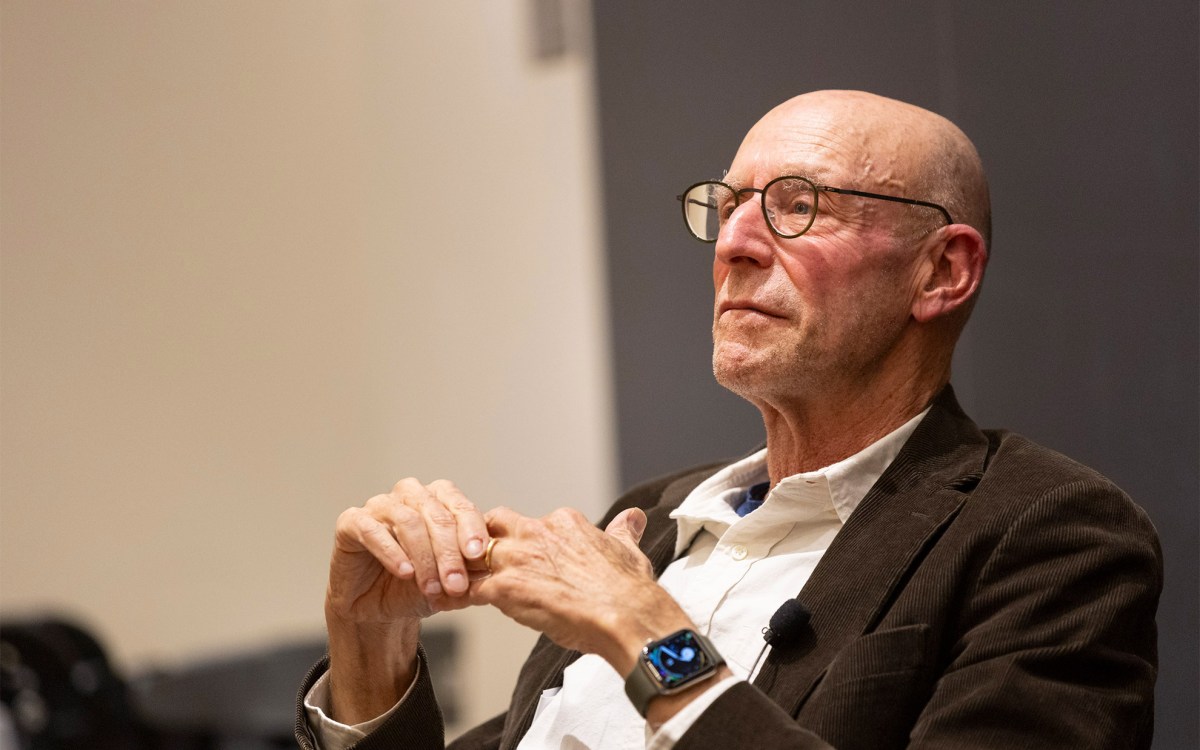
What exactly is consciousness? (And does my Venus flytrap have it too?)
In new book, author Michael Pollan explores nonhuman sentience, stream of thought, AI
-

Can a chatbot be a co-author?
Physicists take souped-up ChatGPT out for a spin, return home with significant discovery

-

Preserving learning in the age of AI shortcuts
In podcast, teachers talk about how they’re using technology to supercharge critical thinking rather than replace it
-

A ‘cocktail’ recipe for brain cells
Stem cell biologists discover how to regenerate type damaged in ALS, spinal cord injuries

-

When you do the math, humans still rule
Harvard’s Lauren Williams, a MacArthur ‘genius,’ joins international effort to challenge notions of AI supremacy
-

‘Imagination’
Less like a picture, more like a video game? Cognitive scientist explains how we ‘see’ what isn’t real.
-
Molecules as motors
Scientists from around the world gathered at the Radcliffe Institute for Advanced Study Oct. 14 for a symposium on advancing efforts to study and design molecules as motors.
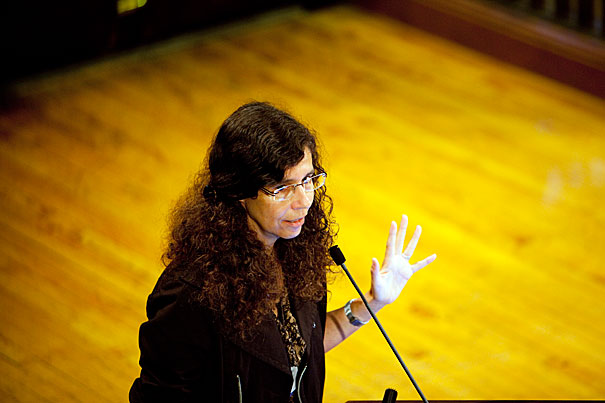
-
New sources near for biofuels
Researchers are making progress in creating a biofuels process that will allow the use of tough-to-digest cellulose produced by hardy grasses that can be grown on marginal land around the world, the head of the Energy Biosciences Institute said Oct. 13 during a presentation at the Harvard University Center for the Environment.
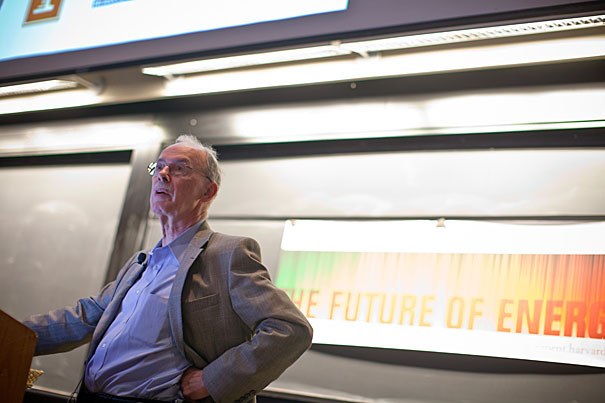
-
Progress in quantum computing
Engineers and physicists at Harvard have managed to capture light in tiny diamond pillars embedded in silver, releasing a stream of single photons at a controllable rate.
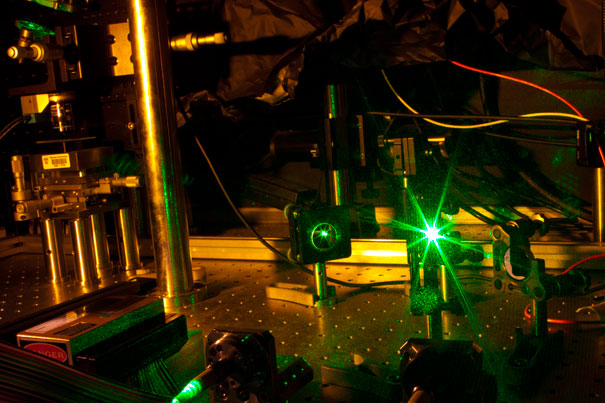
-
Surgical Anesthesia
Allan M. Brandt Dean, Graduate School of Arts and Sciences Amalie Moses Kass Professor of the History of Medicine, Harvard Medical School Professor of the History of Science, Faculty of Arts and Sciences
-
First Programmable Computer
Michael D. Smith Dean, Faculty of Arts and Sciences John H. Finley Jr. Professor of Engineering and Applied Sciences, SEAS
-
Reinforcement Theory
Mahzarin R. Banaji Richard Clarke Cabot Professor of Social Ethics, Faculty of Arts and Sciences
-
The Invention of GIS
Charles Waldheim Chair, Department of Landscape Architecture John E. Irving Professor of Landscape Architecture, Graduate School of Design
-
The Cognitive Revolution
Steven Pinker Johnstone Family Professor of Psychology Harvard College Professor
-
Tracking the pollution amid the remote
A national research project led by Harvard scientist Steven Wofsy tries to fill in the blanks of understanding how the Earth’s atmosphere works by crisscrossing the globe by jet, measuring air changes.
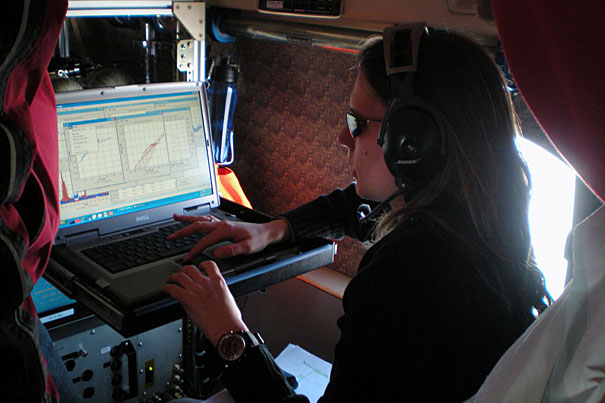
-
Organ Transplant
Nicholas L. Tilney Francis D. Moore Distinguished Professor of Surgery, Harvard Medical School
-
Nobel origins
All three winners of the 2011 Nobel Prize in physics have connections to Harvard — including two whose Ph.D.s launched them into their winning notion of an accelerating universe and the puzzle of dark matter.
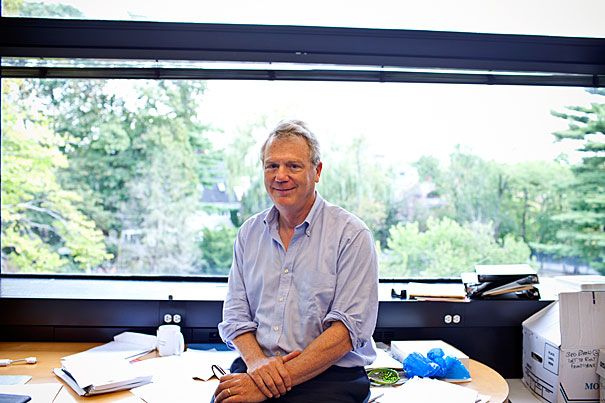
-
Next big thing: Improved tiny tweezers
Harvard School of Engineering and Applied Sciences have developed a new device that creates strong forces more efficiently than traditional optical tweezers and eliminates a problem that caused earlier setups to overheat.
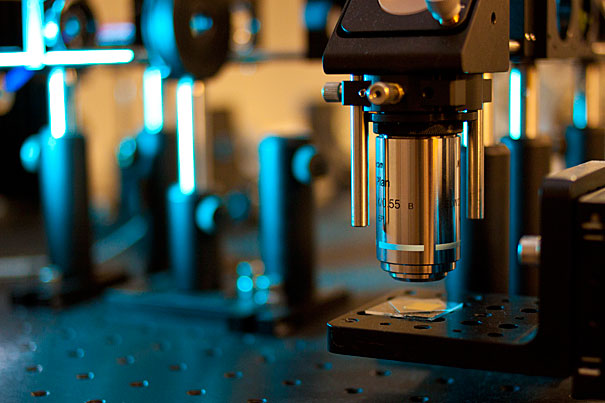
-
The return to recycling
Recycling was the norm before the Industrial Revolution’s creation of cheap consumer goods started to produce what eventually became the throwaway society, according to Susan Strasser, author of the book “Waste and Want: A Social History of Trash.”
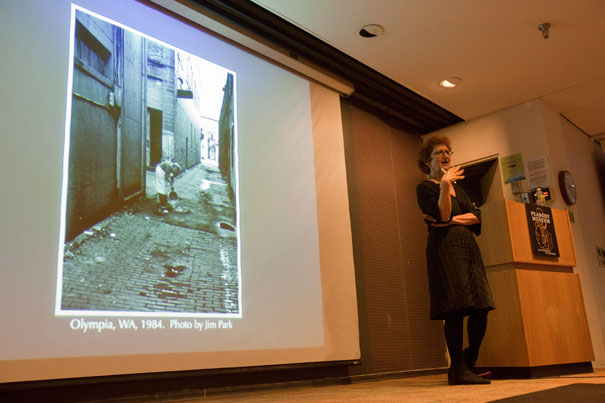
-
He blended it with science
Harvard professor and current Radcliffe fellow Michael Brenner explores the evolution of his wildly popular cooking course.
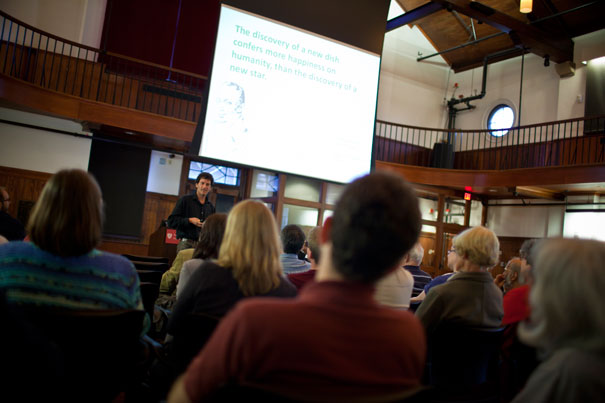
-
Developing fast, but sustainably
The Harvard Sustainability Science Program marked the beginning of its third phase Sept. 19 with a forum on issues facing the rapidly industrializing major nations of China, Brazil, and India.
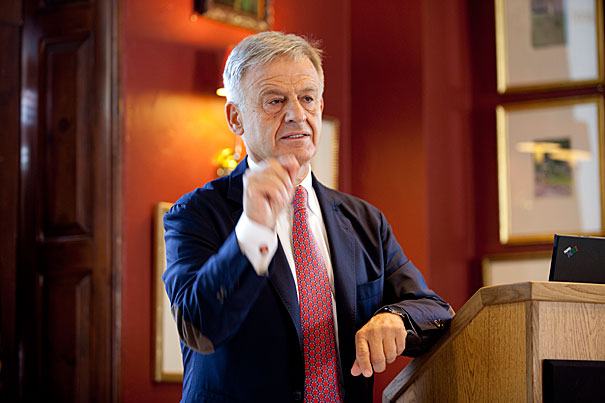
-
Following path of genetic footprint
An international team of researchers studying DNA patterns from modern and archaic humans has found that the Denisovans, a recently discovered hominin group, contributed genes to several populations in Asia and that modern humans settled Asia in more than one migration.

-
Scientific research, artfully shown
Researchers at the Harvard-Smithsonian Center for Astrophysics have embarked on an exploration unusual for space scientists — one involving art. A project probes how the presentation of images of space affects viewers’ appreciation and understanding of what’s happening in the pictures.
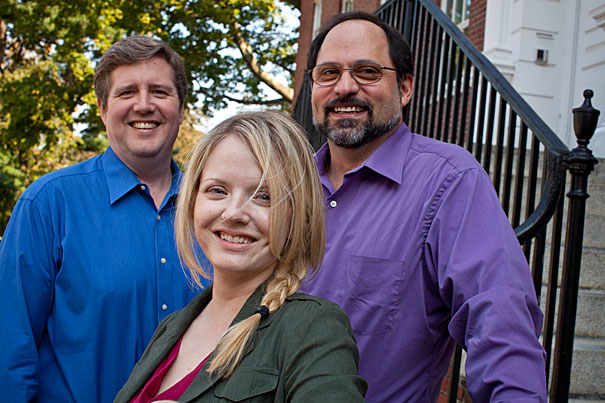
-
Plant offers slick strategy
Adopting the pitcher plant’s slick strategy, a group of applied scientists at Harvard have created a material that repels just about any type of liquid, including blood and oil, and does so even under harsh conditions like high pressure and freezing temperatures.

-
Intuitive? Try God
Harvard researchers exploring the roots of religion have found that intuitive thinking leads to belief in God, while more reflective thinking points toward atheism.
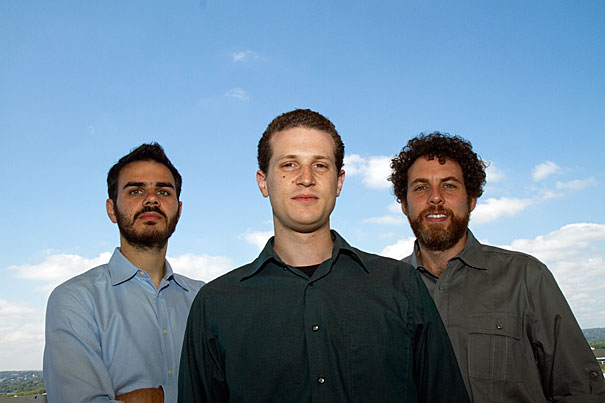
-
Surgical precision
In ES 227, “Medical Device Design,” SEAS students are given the opportunity to solve practical problems in a hospital setting, trying out the tools, learning about their use in real-world situations, and, in some cases, even sitting in on surgical procedures.
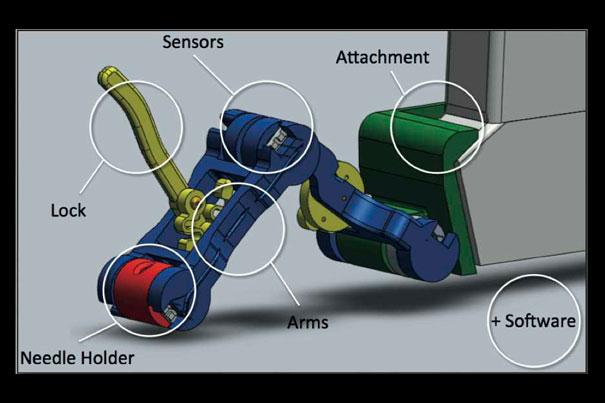
-
Data may not compute
The Dataverse Network Project, spearheaded by Harvard’s Institute for Quantitative Social Science, provides archival storage for research projects whose records are on outmoded technology formats.

-
Guarding the forests
The regeneration of the region’s forests during the last 150 years is an environmental gift that New Englanders shouldn’t squander with thoughtless development, the director of the Harvard Forest said in a talk at the Harvard Museum of Natural History.
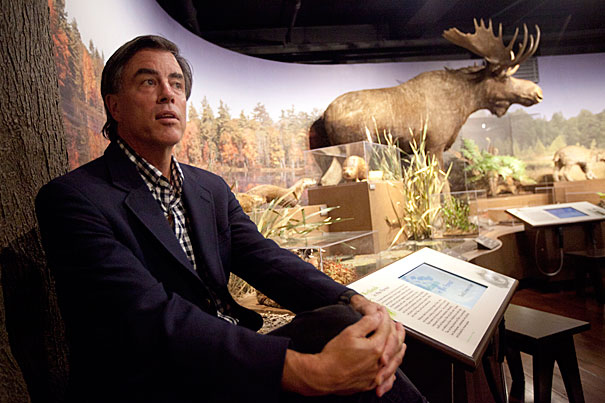
-
What makes AA work?
Among the many ways that participation in Alcoholics Anonymous (AA) helps its members stay sober, two appear to be most important — spending more time with individuals who support efforts toward sobriety and increased confidence in the ability to maintain abstinence in social situations.
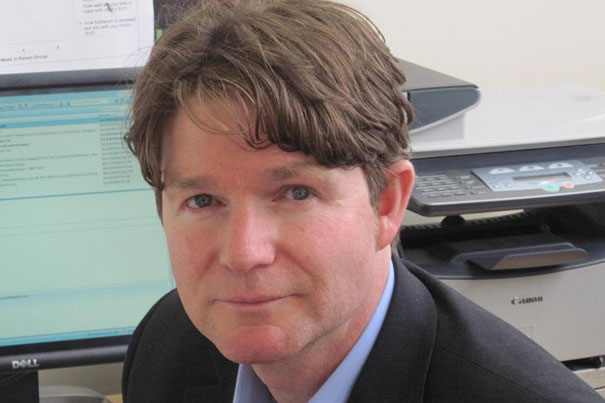
-
When old stars slow down
New research from the Harvard-Smithsonian Center for Astrophysics shows that some old stars might be held up by their rapid spins, and when they slow down, they explode as supernovae. Thousands of these “time bombs” could be scattered throughout our Galaxy.

-
From a flat mirror, designer light
Using a new technique, researchers at the Harvard School of Engineering and Applied Sciences have induced light rays to behave in a way that defies the centuries-old laws of reflection and refraction.
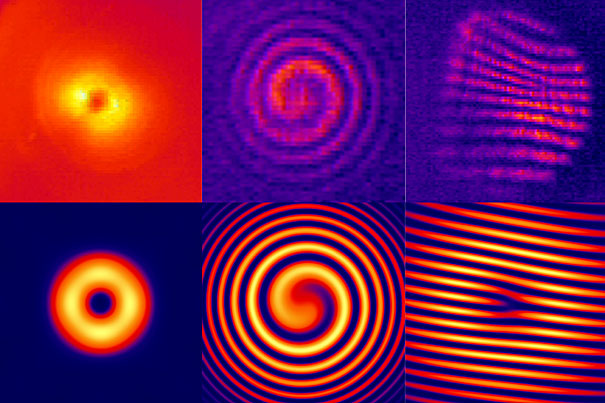
-
With the Earth as teacher
Students in Earth and Planetary Sciences kicked off their academic year early, spending a late-August week in paradise, observing Hawaii’s volcanoes, green and black sand beaches, and overarching geologic splendor.
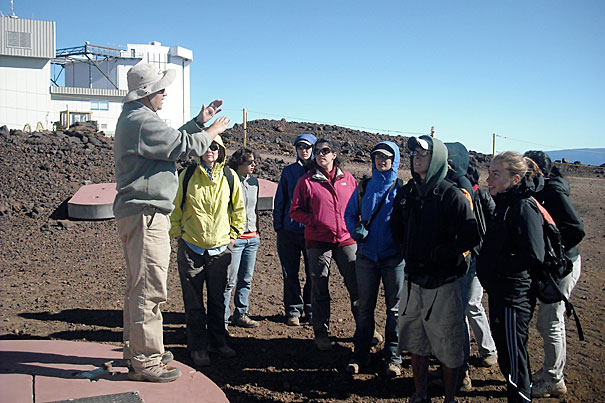
-
Wake-up call
Insomnia is costing the average U.S. worker 11.3 days, or $2,280, in lost productivity every year, according to a study led by Ronald Kessler of Harvard Medical School.

-
Connecting with freshmen
Harvard College freshmen got their first taste Aug. 26 of the world of ideas awaiting them over the next four years in a talk by Professor Nicholas Christakis, who delivered the 2011 Opening Days Lecture, “Connected: The Surprising Power of Our Social Networks and How They Shape Our Lives.”
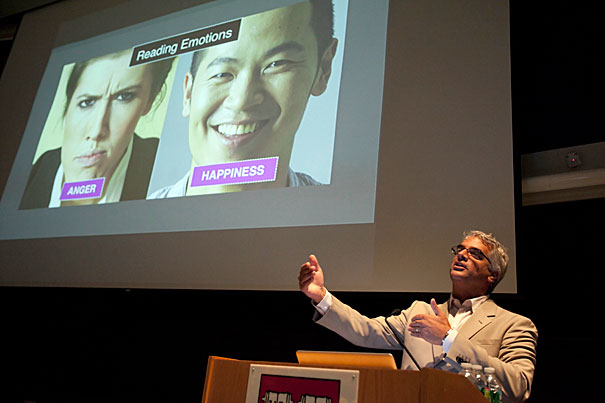
-
Brain navigation
Hanspeter Pfister, an expert in high-performance computing and visualization, is part of an interdisciplinary team collaborating on the Connectome Project at the Center for Brain Science. The project aims to create a wiring diagram of all the neurons in the brain.
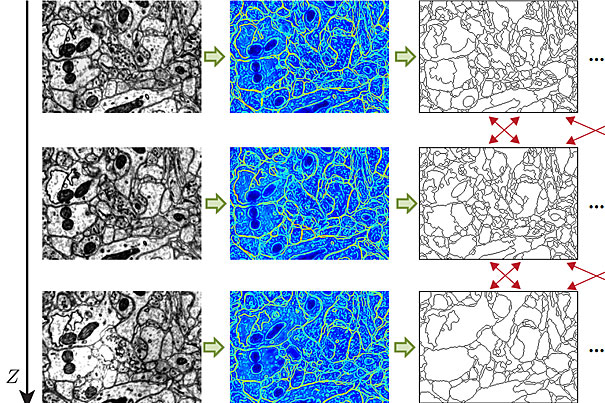
-
Electrical conductor sparks interest
Harvard and Stanford chemists have created and purified an organic semiconductor with excellent electrical properties, simultaneously confirming a screening process being used to find new photovoltaic materials.


